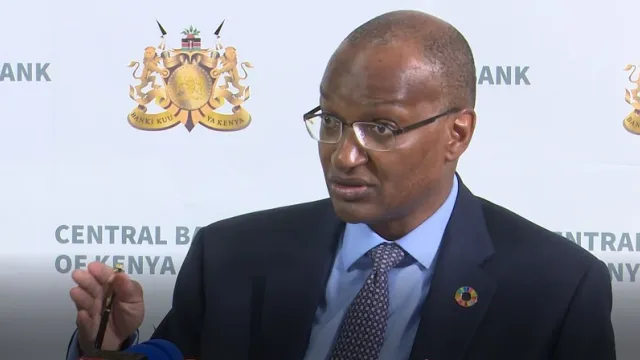IMF wins in CBK data fight

IMF wins in CBK data fight
Decision by the Kenya National Bureau of Statistics to adopt models for measuring GDP caused a plunge in Kenya’s quarter two 2020 GDP figures and cast the national statistics arm against the Central Bank of Kenya (CBK).
The World Bank report on the state of the Kenyan Economy says KNBS applied methodology recommended by Eurostat which saw a 56.2 per cent contraction in education output in constant prices, shaving 3.8 percentage points off real GDP growth.
“This is an unprecedented decline, and is the largest single driver of the Q2 real GDP contraction followed by the contraction in real taxes on products, which reduced real GDP growth by 1.5 percentage points,” the World Bank said.
The figures pit CBK Governor, Dr Patrick Njoroge, against KNBS over estimates of economic growth of key sectors in the second quarter last year, resulting in different economic growth projection for 2020.
Read also: Small investors grow fund by Sh7 billion in three months
Dr Njoroge said the accommodation and food services sector — which was the hardest-hit by Covid-19 shutdowns and restrictions — contracted a narrower 64.9 per cent in the second quarter as opposed to 83.3 per cent the KNBS published.
Dr Njoroge, as a result, expects annual economic growth for 2020 to rebound to an estimated 1.3 per cent from 5.7 per cent slump in the second quarter.
That is a downgrade from 3.1 per cent in September, but paints a more optimistic outlook than the Treasury CS Ukur Yatani’s 0.6 per cent which is based on “KNBS’ (economic growth) numbers for Q1 and Q2 which he said will need to be revised to reflect new information.
This differences have led to delay in releasing Kenya’s 2020 GDP figures, forcing the country to make budget provisions without the necessary data.
But now CBK has bowed in to pressure and announced it will change its calculations of economic growth projections amid differences with the national statistics body.
CBK released a white paper on monetary policy changes following technical discussions with the IMF saying it will refine its Gross Domestic Product (GDP) forecasting.
This was part of what Kenyan authorities agreed to under the government and the IMF Sh257 billion loan deal. The Fund said CBK will implement the reforms as part of the structural benchmarks to access the debt.
“The reforms will focus on: refining macroeconomic modelling and forecasting frameworks in line with changing structure of the economy,” CBK Governor said.
CBK seems to have backed down on GDP estimates agreeing to IMF reforms as part of the deal between Kenya and the multilateral institutions to unlock billions of low cost debt to support the economy following the fallout of the Covid-19 pandemic.
The IMF had proposed monetary policy reforms under the deal with the Kenyan government.
CBK says its forward looking forecasts are consistent with international best practices but there was need be realigned to the changing structure of the Kenya economy to include technology, non-traditional sectors and service industry.
The governor said its economic models also need to change in light of increased global shocks and uncertainties and the impact on prices.
“This requires continuous upscaling and refining forecasting frameworks to support monetary policy decision making process,” Dr Njoroge said.
This was not the first time CBK has clashed with IMF over policy changes. In 2019, CBK disputed assertions by the Bretton woods institution which claimed the Kenyan shilling was overvalued.
In its report, IMF looked at the gap between exports and imports called current account deficit both cyclical and actual that are currently above normal. The REER approach also shows a similar-size of overvaluation, equivalent to about 18 per cent.
Dr Njoroge said IMF used unconventional models including the External Balance Assessment (EBA) which, according to him, was generally used for developed economies.



